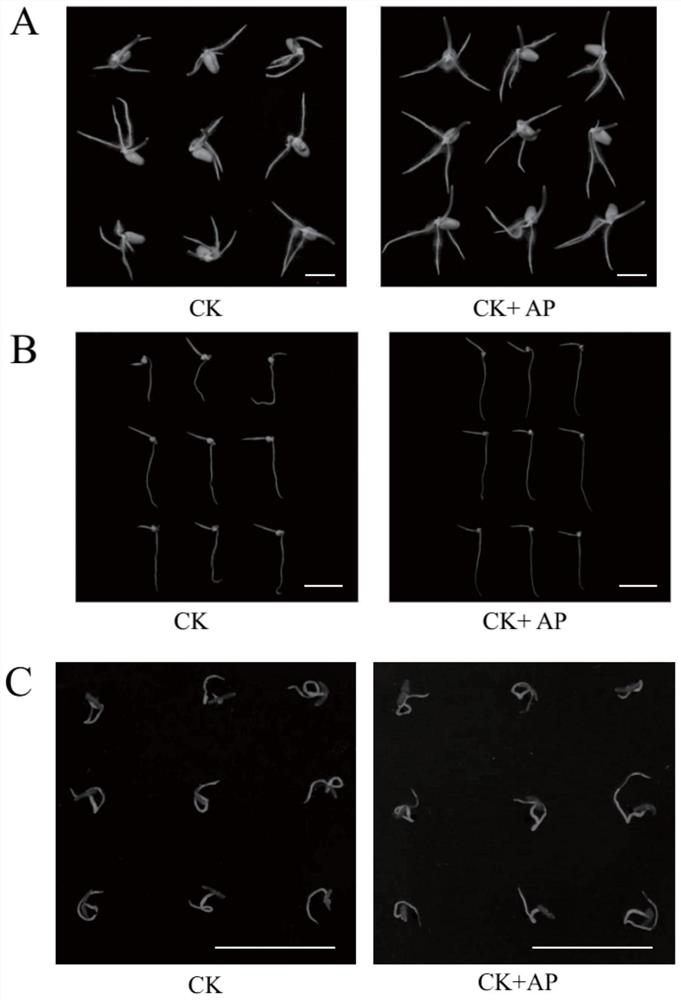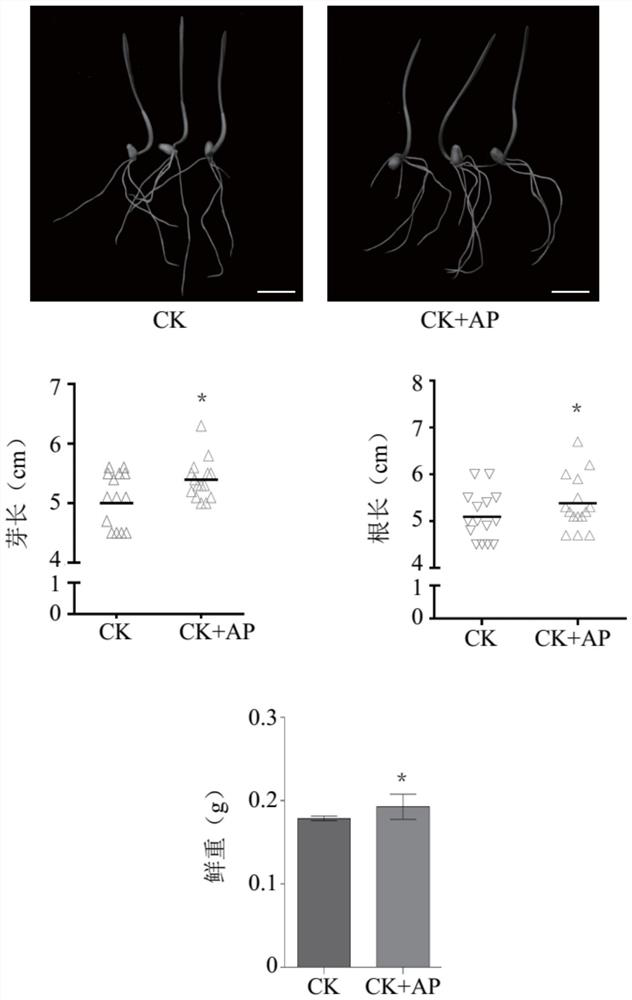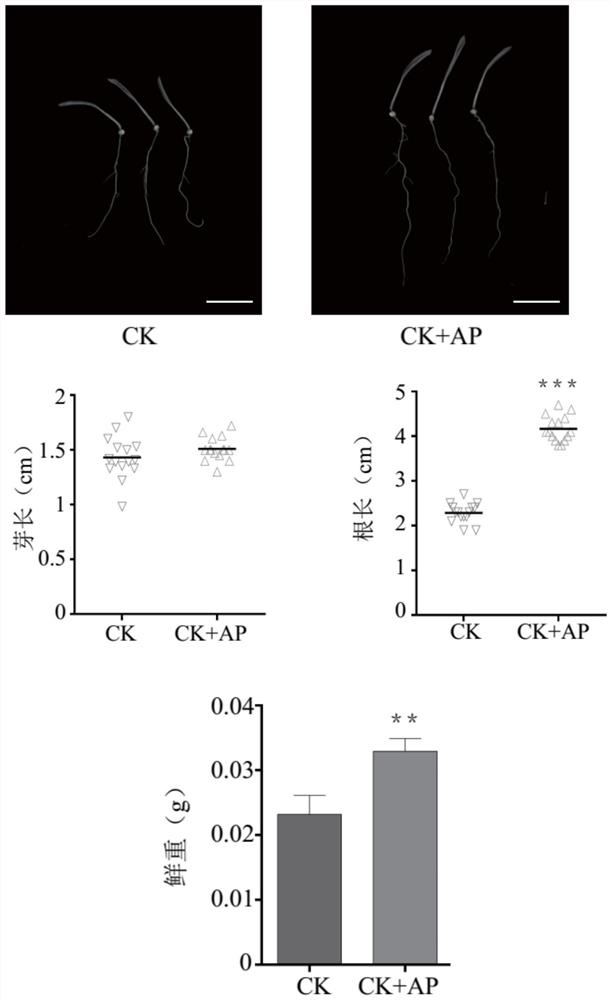Application of apigenin in preparation of preparation for promoting plant growth and improving plant salt tolerance
A technology for promoting plant growth and apigenin, applied in the directions of plant growth regulators, plant growth regulators, applications, etc., can solve problems such as the decline of economic yield of crops, and achieve the effect of improving salt stress resistance, promoting plant growth, and achieving remarkable effects. Effect
- Summary
- Abstract
- Description
- Claims
- Application Information
AI Technical Summary
Problems solved by technology
Method used
Image
Examples
Embodiment 1
[0025] Embodiment 1, apigenin can promote plant growth: seed germination and seedling growth
[0026] 1. Select plump and healthy wheat seeds, millet seeds, and tobacco seeds. First, sterilize the seed surface with 70% ethanol for 20 seconds, and then wash it with sterile water for 5-6 times. The seeds of the control group and the experimental group were soaked in the corresponding treatment solution for 12 hours for pretreatment. Three groups of parallels were used for each treatment, with 50 seeds in each parallel.
[0027] Spread the soaked seeds on a 9 cm glass Petri dish with sterilized filter paper placed in advance, and cultivate them at 25°C. Add 5 mL of the corresponding treatment solution to each Petri dish. Count the germination data every day, and count the shoot length, root length and fresh weight. Described seed germination rate, wheat is the germination rate of the 2nd day, millet is the germination rate of the 3rd day, tobacco is the germination rate of th...
Embodiment 2
[0038] Embodiment 2, apigenin can improve the salt tolerance of plant seeds
[0039] 1. Select plump and healthy wheat seeds, millet seeds, and tobacco seeds. First, sterilize the seed surface with 70% ethanol for 20 seconds, and then wash it with sterile water for 5-6 times. The seeds of the control group and the experimental group were soaked in the treatment solution for 12 hours respectively for pretreatment. Three parallel groups were used for each treatment, with 50 seeds per parallel.
[0040] Spread the soaked seeds on a 9 cm glass Petri dish with sterilized filter paper placed in advance, and cultivate them at 25°C. Add 5 mL of the corresponding treatment solution to each Petri dish. Germination data were counted daily. Described seed germination rate, wheat is the germination rate of the 2nd day, millet is the germination rate of the 3rd day, tobacco is the germination rate of the 5th day; Germination potential, tobacco is the germination potential of the 7th da...
Embodiment 3
[0048] Embodiment 3, apigenin can improve the salt tolerance of plant seedlings
[0049] 1. Select plump and healthy wheat seeds, millet seeds, and tobacco seeds. First, sterilize the seed surface with 70% ethanol for 20 seconds, and then wash it with sterile water for 5-6 times. Two days after the germination of wheat, three days after the germination of millet, and five days after the germination of tobacco, the seedlings with the same growth were selected and treated with corresponding solutions. Observe the phenotype. The shoot length, root length, fresh weight and survival rate were counted.
[0050] Depend on Figure 6 , Figure 7 , Figure 8 It can be seen that, compared with the control, exogenous application of apigenin under salt stress conditions can significantly promote the growth of plants.
PUM
 Login to View More
Login to View More Abstract
Description
Claims
Application Information
 Login to View More
Login to View More - R&D
- Intellectual Property
- Life Sciences
- Materials
- Tech Scout
- Unparalleled Data Quality
- Higher Quality Content
- 60% Fewer Hallucinations
Browse by: Latest US Patents, China's latest patents, Technical Efficacy Thesaurus, Application Domain, Technology Topic, Popular Technical Reports.
© 2025 PatSnap. All rights reserved.Legal|Privacy policy|Modern Slavery Act Transparency Statement|Sitemap|About US| Contact US: help@patsnap.com



